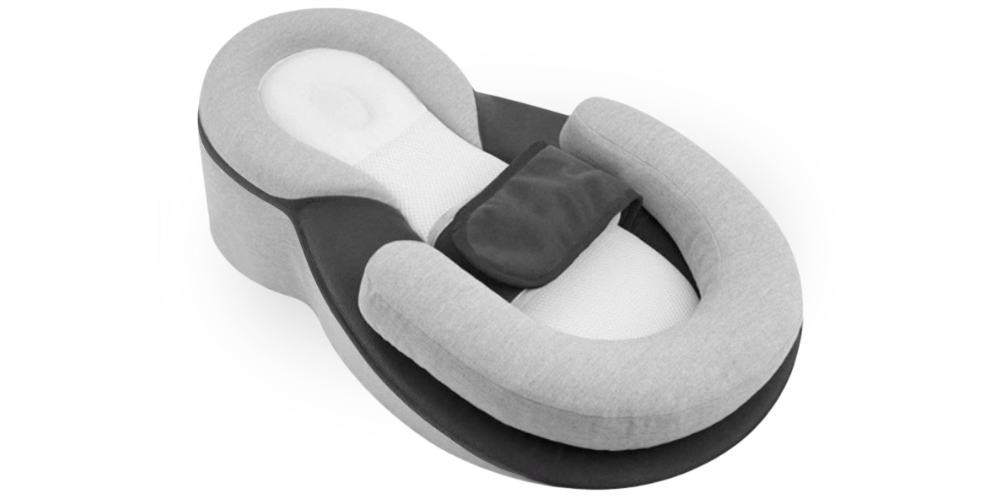No one really prepares you for the reality of having a reflux baby.
The endless feeding. The crying that cuts right through your chest. The sleepless nights that seem to last forever.
You scroll through social media and see other moms with sleepy newborns curled up in bassinets, while you’re pacing the living room at 3 a.m. with spit-up on your shoulder.
If that’s you — you’re doing nothing wrong.
The first three months with a reflux baby are brutally hard. But you can get through this season with more calm, structure, and support.
Note: This article provides emotional support and general information. For medical concerns, always consult your pediatrician.
Reflux Isn’t Your Fault — It’s Common (and Temporary)
First, a reminder that matters: reflux isn’t caused by something you did.
Most newborns experience some level of reflux because their digestive system is immature. It’s uncomfortable for them — and heartbreaking for you — but it won’t last forever.
✔️ Reflux peaks between 2–4 months.
✔️ It usually improves significantly by 6 months.
✔️ Most babies outgrow it completely before 12 months.
This is a season — not forever.
Step 1: Simplify Everything
When you’re exhausted, overwhelmed, and emotionally drained, you don’t need Pinterest-perfect routines. You need survival mode.
Here’s what that can look like:
-
Lower expectations. Forget spotless houses or complicated baby schedules.
-
Short, repeatable routines. Feed, burp, upright, sleep. Over and over.
-
One safe, comfortable sleep setup. No overcomplicating.
-
Ask for help early and often. Partners, friends, grandparents.
This is not about doing everything. It’s about doing what matters most.
Step 2: Master the Post-Feed Routine
The minutes after a feed are crucial for reflux babies. A few gentle habits can make a massive difference in comfort and sleep.
-
Hold your baby upright for 20–30 minutes after every feed.
-
Burp at least once during and once after feeding.
-
Avoid tight clothing around the belly.
-
Keep stimulation low after feeds (dim lights, soft voices).
These little rituals add up — and can turn a chaotic night into a manageable one.
Step 3: Create a Safe, Calming Sleep Environment
Sleep is hard with a reflux baby. But creating a space that supports digestion and safety can help everyone get more rest.
-
Keep the room cool (19–21°C / 66–70°F).
-
Avoid clutter, pillows, or unsafe props in the sleep area.
-
Use breathable sleep materials to prevent overheating.
-
Maintain a gentle incline if needed — only with a tested, ergonomic product designed for babies.
This is why so many parents choose DreamNest™.
With its pediatric-recommended 15° incline, breathable materials, and anti-roll safety design, it gives babies the comfort they need to settle — and parents the peace of mind to finally exhale.
👉 Try DreamNest™ 100% risk-free for 90 nights.
Step 4: Build Your “Night Shift Strategy”
One of the biggest mistakes reflux parents make is trying to do everything alone.
If possible, divide and conquer with your partner or a trusted helper.
-
Alternate night shifts — one sleeps, one stays up for feeds.
-
Prep bottles, burp cloths, and swaddles in advance.
-
Create a dim, quiet feeding station.
-
Give yourself permission to rest during the day.
You don’t get extra points for being exhausted. You get strength by protecting your energy.
Step 5: Take Care of You, Too
Reflux affects moms emotionally just as much as babies physically.
Sleep deprivation, anxiety, and guilt can pile up fast.
-
Eat real food — even if it’s simple.
-
Take 10 minutes of quiet for yourself daily.
-
Talk to someone — a friend, your partner, a support group.
-
Cry if you need to. (That’s strength, not weakness.)
-
Remind yourself daily: this is temporary.
Your baby needs you — not a perfect version of you. Just you, showing up.
When to Call Your Pediatrician
Most reflux improves with time and gentle care, but you should seek medical advice if your baby:
-
Spits up forcefully or vomits green/yellow fluid
-
Refuses feeds or arches in pain
-
Shows poor weight gain
-
Has trouble breathing during or after feeds
-
Cries persistently after every meal
You don’t need to wait for a “crisis” to call. Sometimes just reassurance can give you the strength to keep going.
FAQs
Will my baby outgrow reflux?
Yes — most babies improve by 4–6 months and outgrow reflux completely by 12 months.
Is it safe to use inclined sleep products?
Only if the product is specifically designed and tested for infants, like DreamNest™. Never use DIY inclines.
Why does it feel worse at night?
Because babies lie flat longer and digestion slows — gravity can’t help as much.
Can I do anything during the day to help nights?
Yes — frequent upright time, smaller feeds, and calm routines can reduce night discomfort.
How do I survive emotionally?
Ask for help. Lower your expectations. Remember this is not your fault. This season will pass.
Conclusion: This Season Will End — You’re Stronger Than You Think
The first three months with a reflux baby are overwhelming.
But they’re also temporary. Every day, your baby’s digestive system grows stronger. Every night you get through is proof of your strength.
You’re not failing — you’re surviving something hard with love and resilience.



